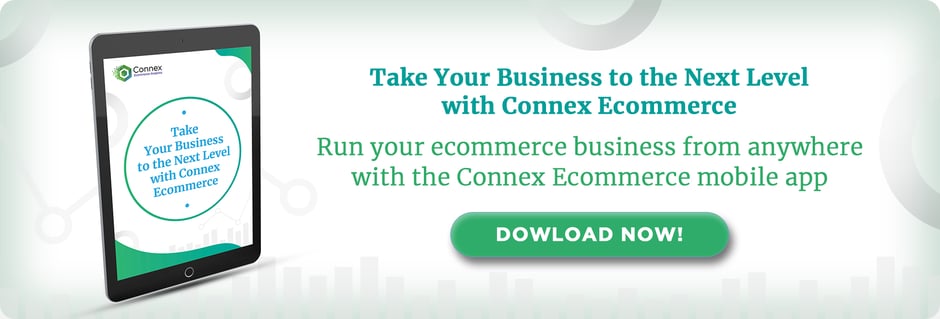As ecommerce scales, keeping sales, inventory, and finances aligned grows increasingly complex—especially when selling across multiple platforms. That’s why Connex’s new integration with Sage Intacct is a game‑changer for brands looking to automate accounting without sacrificing visibility. Read on to learn how the integration works, the benefits, and how it helps you unlock a unified commerce + finance system.
What Sage Intacct Brings to the Table
Sage Intacct is a best-in-class cloud accounting system widely used by mid-sized and growing companies. It offers:
- Multi-entity support for managing multiple brands or subsidiaries.
- Robust revenue recognition and dimensional analytics.
- A modern API-driven architecture with real-time transaction sync.
More than 24,500 businesses use Sage Intacct today, naming it #1 in customer satisfaction across more than a dozen categories.
Connecting ecommerce platforms like Amazon, Shopify, WooCommerce, or BigCommerce with Sage Intacct has typically required custom integrations or middleware. Connex now makes that friction disappear.
How Connex Seamlessly Syncs Ecommerce with Sage Intacct
1. Multi-Channel Order & Sales Sync
Connex links your sales channels—Amazon US/EU, Shopify, WooCommerce, BigCommerce—and automatically syncs new orders, invoices, payments, customer data, and taxes into Sage Intacct. No manual exports or imports required.
2. Rule-Based Mapping & Workflow Automation
With Connex’s intuitive Rules Engine, you customize the logic for how data flows into Sage Intacct:
- Map platform-specific SKUs to GL accounts
- Filter or transform transaction fields
- Route orders by channel, region, or department
- Automate journal entry, posting, and reconciliation logic—all without coding.
3. Real-Time & Scheduled Syncs
Transactions flow into Sage Intacct in real-time or on a custom cadence. Orders, payments, sales tax, and profit/loss entries are captured instantly—giving finance teams current and accurate financial data.
4. Multi-Entity Support
For businesses with separate legal entities (e.g., different brands, subsidiaries, or merchant IDs), Connex passes sales data into the correct organization within Sage Intacct—without duplicate entry or reconciliation headaches.
Top Benefits for Ecommerce & Finance Teams
✅ Eliminate Manual Accounting Entry
Connex automates order-to-cash workflows—from capturing sales orders and syncing payments to generating invoices or journal entries in Sage Intacct. This removes spreadsheets and manual data entry from the equation.
✅ Save Time & Reduce Errors
By removing manual workflows, your team spends less time on reconciliation and more on analysis. Field mapping rules and bi-directional syncing built into Sage’s API reduce data mismatches and human error.
✅ Real-Time Financial Visibility
Finance and ops teams gain immediate insight into sales, taxes, and profitability—broken out by channel, SKU, entity, or date. This enables faster close cycles and better decision-making.
✅ Flexible Workflow Logic
Connex's Rules Engine offers businesses control over how to route orders, allocate to departments, or handle exceptions using conditional logic. This flexibility means you can manage complex financial workflows without IT involvement.
How the Connected Workflow Looks in Practice
-
You connect your sales channels to Connex (Shopify, Amazon, etc.).
-
Connex pulls in orders and payment events as they happen.
-
You configure your sync rules—for example:
-
Map order source “Amazon US” to Entity A in Intacct
-
Post revenue to Account Code 4000
-
Allocate shipping cost to Department=“Fulfillment”
-
Set condition to exclude test or zero-dollar orders
-
-
Connex posts reconciled invoices (or journal entries) to Sage Intacct.
-
Inventory, customer, and payment updates can flow back into your commerce system if needed.
-
Your finance team accesses real-time income, balance sheet, and departmental P&L data via Intacct’s dashboards.
Who Benefits Most from Connex + Sage Intacct?
-
Multi-channel brands that sell across Amazon and Shopify (or other platforms) and need a unified financial system.
-
Growing businesses with multiple entities, departments, or merchant flows.
-
Finance teams who want clean, automated data—without manual imports or live spreadsheets.
-
Businesses needing accurate, real-time visibility into revenue, cost of goods sold, and profit via Sage dashboards.
-
And companies using existing ERPs or iPaaS tools—looking for a frictionless accounting integration.

Why This Integration Matters Now
• Complexity Grows with Scale
As your ecommerce footprint grows across platforms and fulfillment partners, the manual overhead of managing accuracy in accounting increases exponentially. Connex + Sage Intacct offers automated reconciliation at scale.
• Finance Deserves Real-Time Access
Waiting days or weeks to aggregate sales into your general ledger slows down decision-making. With real-time syncing, even mid-month reports become actionable.
• Reduce Risk of Compliance Errors
Correct mapping to GL codes, departments, entities, and taxes ensures your financials are audit-ready and compliant, without manual cross-checking.
Implementation Snapshot
Most companies report being able to configure the Connex → Sage Intacct connection in under an hour:
- Link your account credentials to Connex
- Set up entity and channel routing rules
- Map your SKUs and financial codes
- Perform a test sync, then go live
No custom development needed—thanks to pre-built connectors, a flexible mapping engine, and the Sage Intacct Data Flow architecture underlying the integration
Final Thoughts
Connex’s integration with Sage Intacct brings two powerful systems together to power modern ecommerce:
- Connex gives you the intelligence to sync orders, inventory, and payments across platforms.
- Sage Intacct brings financial visibility, multi-entity accounting, and compliance-ready reporting.
Together, they deliver a unified commerce-to-finance workflow that saves time, reduces errors, and gives business leaders the real-time insights they need to grow smarter.
Want to explore how Connex + Sage Intacct could work for your business? Let us know—we’d be happy to connect.

%20(34).jpg)


